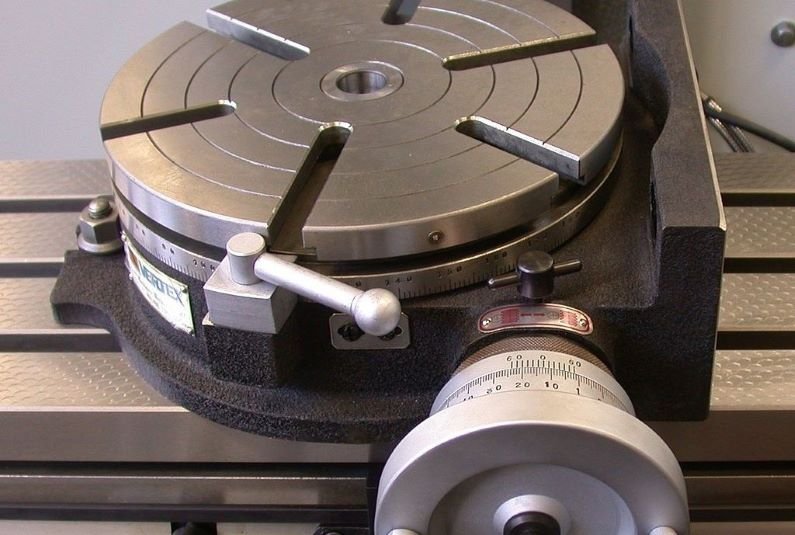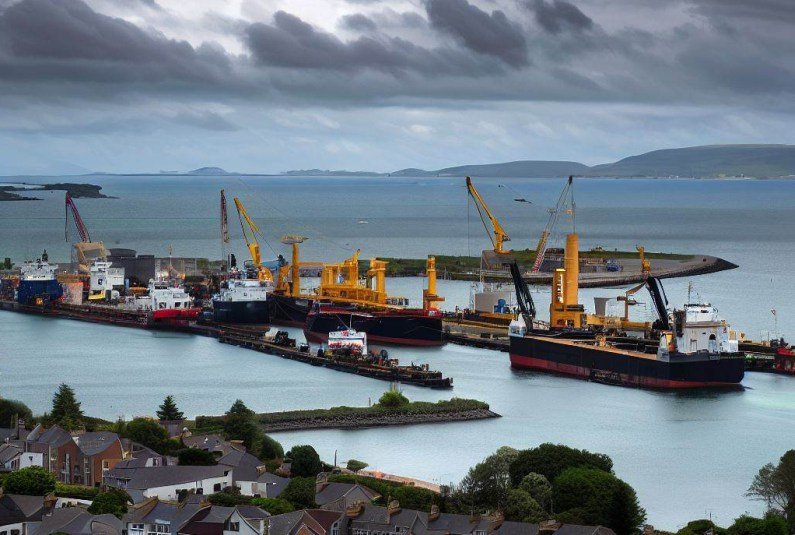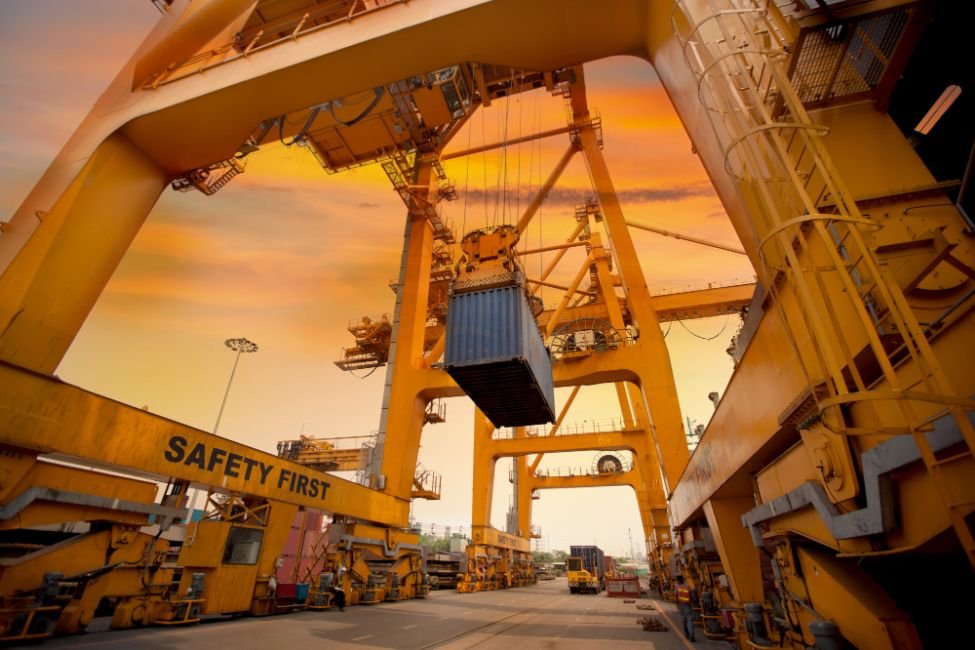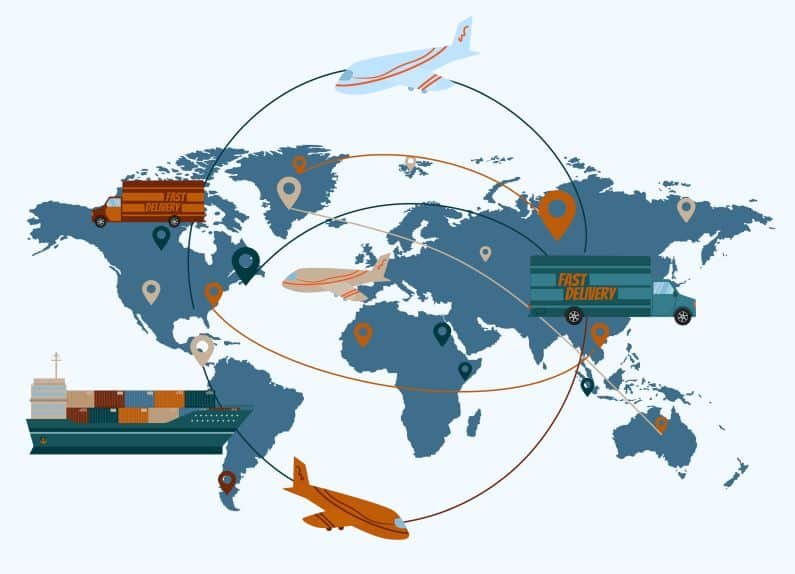Rotary tables serve as critical components in the oil and gas industry, enabling the drilling of wells and extraction of valuable resources. As demand for oil equipment spans the globe, efficient and reliable shipping rotary tables become paramount.
This page offers a detailed manual for shipping rotary tables to different global locations, emphasizing important measures, factors to consider, and recommended approaches for ensuring a seamless and successful transportation experience.
The Importance of Shipping Rotary Tables Globally
In the fast-paced and interconnected world of the oil industry, the global shipping of rotary tables holds immense importance.
As critical components in drilling operations, rotary tables play a pivotal role in the extraction of valuable resources.
This article highlights the key reasons why shipping rotary tables globally is crucial, emphasizing their impact on international operations, cost-effectiveness, technological advancement, and the expansion of oil exploration.
Supporting International Operations
Globally shipping rotary tables enables oil companies to conduct operations in various parts of the world.
By transporting these essential components to different regions, companies gain access to diverse oil reservoirs and extend their reach to new markets.
Transporting these crucial elements to various areas allows businesses to tap into a wide range of oil deposits and expand their presence in untapped markets.
This global presence ensures a steady supply of resources, strengthens energy security and reduces dependence on specific regions or countries. Shipping rotary tables globally supports the growth and sustainability of the oil industry by enabling exploration and production in untapped regions.
Cost-Effectiveness and Availability
Shipping rotary tables globally offers cost-effective solutions for oil companies. Rather than manufacturing or purchasing new rotary tables for each location, companies can utilize existing equipment and transport it to different sites as needed.
This strategy significantly reduces costs associated with equipment procurement, maintenance, and storage.
Implementing this approach effectively decreases the expenses connected to the acquisition, upkeep, and storage of equipment.
Furthermore, shipping rotary tables globally allows for efficient utilization of resources, ensuring that equipment is available when and where it is needed, optimizing operational efficiency.
Technological Advancement and Expertise Sharing
Globally shipping rotary tables facilitates the exchange of technological advancements and expertise within the oil industry.
As rotary tables are transported across borders, companies have the opportunity to share best practices, innovations, and engineering knowledge.
Collaboration between international oil companies fosters the development of new drilling techniques, operational efficiencies, and safety protocols.
This exchange of expertise drives continuous improvement, enabling the industry to enhance performance, reduce costs, and mitigate environmental impact.
Enabling Oil Exploration in Challenging Environments
Certain regions around the world present unique challenges for oil exploration due to geographical, geological, or political factors. Shipping rotary tables globally enables companies to transport specialized equipment to these complex environments.
Whether it be deep-sea drilling, Arctic exploration, or remote locations, the ability to transport rotary tables globally ensures access to the necessary equipment and expertise required for such operations.
This expands the frontiers of oil exploration, unlocking potential reserves that were previously inaccessible.
Strengthening International Partnerships
Global rotary table shipping strengthens international partnerships and fosters collaboration between oil companies worldwide. As rotary tables are transported across continents, it encourages alliances, joint ventures, and knowledge sharing between companies from different regions.
These partnerships promote technological innovation, cultural exchange, and mutual support, driving sustainable growth and strengthening the resilience of the global oil industry.
Meeting Global Energy Demand
Globally shipping rotary tables plays a critical role in meeting the ever-increasing global energy demand.
As emerging economies continue to develop and established economies strive for sustained growth, the need for reliable and efficient oil extraction becomes paramount.
Shipping rotary tables globally ensures a continuous supply of equipment, supporting the oil industry’s efforts to meet energy demands and fuel economic progress on a global scale.
The Shipping Process
Preparing the Rotary Table
Before shipping rotary tables, thorough preparation is necessary to protect the equipment during transit. Start by inspecting the table, ensuring it is free from any damages or defects.
Securely package it using appropriate materials such as crates, skids, or custom-made shipping frames to provide adequate protection against external forces.
Safeguard fragile parts and delicate components, such as bearings or gear mechanisms, by utilizing specialized packing techniques, including cushioning, bracing, and proper immobilization.
Selecting a Freight Forwarder
Engaging a reputable and experienced freight forwarder specializing in oil equipment shipping is crucial, such as Texas International Freight.
With a proven track record in handling rotary tables and a solid understanding of the logistics involved, we are the best option for you and your unique shipping needs.
We possess knowledge of customs regulations, appropriate packaging methods, and necessary permits required for specific destinations. Seek recommendations, conduct research, and compare quotes to find the most reliable and cost-effective option.
Transportation Modes
Consider the transportation mode based on the destination and urgency.
Rotary tables can be transported via air, sea, or land, depending on factors such as distance, time constraints, and budget.
Air freight offers the fastest transit time, ideal for urgent deliveries, but can be more expensive.
Sea freight is suitable for longer distances, offering cost efficiency for bulk shipments.
If shipping within the same continent or nearby regions, land transportation can be a viable option.
Documentation and Customs
Proper documentation and compliance with customs regulations are critical when shipping rotary tables internationally.
Work closely with the freight forwarder to prepare the necessary paperwork, including commercial invoices, packing lists, bills of lading, and customs declarations.
Ensure accuracy and completeness to avoid delays or complications at customs checkpoints.
Familiarize yourself with specific import/export regulations and any applicable licenses or permits required by the destination country.
Insurance Coverage
Protecting the value of the rotary table during transit is essential.
Consider obtaining comprehensive insurance coverage that safeguards against potential loss, damage, or theft.
Consult with the freight forwarder or insurance provider to determine the appropriate coverage based on the equipment’s value and the associated risks during shipping.
Packaging and Labeling
Ensure proper packaging and labeling of the rotary table to facilitate smooth handling and identification.
Clearly label the packaging with the equipment’s specifications, dimensions, weight, and any handling instructions.
Use durable labels that can withstand environmental conditions and remain legible throughout the journey.
The packaging should adhere to international standards and guidelines to minimize the risk of damage during transportation.
Tracking and Communication
Maintain regular communication with the freight forwarder to track the shipment’s progress and address any concerns promptly.
Utilize tracking technologies and systems to monitor the rotary table’s location and receive real-time updates.
Effective communication ensures transparency and enables timely resolutions in case of unforeseen circumstances or any necessary adjustments to the shipping itinerary.
Conclusion
Shipping rotary tables for oil equipment globally requires meticulous planning, attention to detail, and collaboration with experienced freight forwarders.
By following the steps outlined in this guide, including thorough preparation, proper documentation, suitable transportation modes, and effective communication, the shipping process can be streamlined, ensuring the safe and timely arrival of rotary tables to various parts of the world.
Successful shipping of these vital components supports the oil and gas industry’s global operations, facilitating efficient
FAQs
Q: Why are rotary tables important in the oil and gas industry?
A: Rotary tables play a critical role in drilling wells and extracting valuable resources, making them essential components in the industry.
Q: How does shipping rotary tables globally benefit oil companies?
A: Shipping rotary tables globally allows oil companies to access diverse oil reservoirs, extend their reach to new markets, reduce costs, and optimize operational efficiency.
Q: What are the considerations for shipping rotary tables internationally?
A: Thorough preparation, proper documentation, suitable transportation modes, and effective communication are crucial considerations for successful international shipping of rotary tables.
Q: How can I protect the rotary table during shipping?
A: Thoroughly inspect and securely package the rotary table using appropriate materials, specialized packing techniques, and consider obtaining comprehensive insurance coverage.
Q: What are the transportation options for shipping rotary tables?
A: Rotary tables can be transported via air, sea, or land depending on distance, urgency, and budget, with each mode offering different advantages and considerations.
Q: What are the key considerations when shipping rotary tables internationally?
A: Proper documentation, compliance with customs regulations, appropriate packaging, insurance coverage, and effective communication are essential considerations for successful shipping of rotary tables.





